#if only because it actually has the protagonist get to BE a vampire by the end
Text
if anyone's wondering why i describe laios' eyes as "amber" in my fics it's because during proof reading i'd read "gold eyes" and keep jumpscaring myself picturing robert pattinson's glossed up contacts in the twilight movies, may the cringe courts have mercy on me for this act of self-preservation
#dungeon meshi#i trust yall to tell me if it's cringe anyway lol#i think laios would like twilight tbh#if only because it actually has the protagonist get to BE a vampire by the end#although he would absolutely find edward super boring and be team jacob#ive already shared my thoughts on edward/bella being labru coded but just to reiterate#kabru would 100% find edward painfully relatable for having this singular person be completely unreadable to them#someone other than me will have to write the au tho 😔
17 notes
·
View notes
Text
The Untrustworthy Fake: Disability Tropes

[ID: A screenshot of Willy Wonka from Charlie and the Chocolate Factory as he limps towards a crowd using a cane. In the picture, he has a brown top hat in his hand, and he's wearing a suit with a purple jacket, multicoloured bow tie and cream coloured pants. Beside him is text that reads: "Disability Tropes, The untrustworthy Fake" /End ID]
Tell me if this sounds familiar: A new character is introduced into a story with some kind of disability - usually visible but not always. Maybe they're a seemingly harmless person in a wheelchair, maybe they're a one-legged beggar on the street, or maybe they're an elderly person with a cane and a slow, heavy limp. But at some point, it's revealed it's all a ruse! The old man with a cane "falls" forward and does a flawless summersault before energetically springing back up to his feet, the wheelchair user gets to their feet as soon as they think the other character's backs are turned, the one legged beggar's crutch is knocked out of his hand, only to have his other leg pop out of his loose-fitting tunic to catch him.
All of these are real examples. Maya and The Three introduces one of it's main protagonists, Ricco, by having him pretend to be missing a leg in order to con people (something that works on the protagonist, at least at first), Buffy The Vampire Slayer had the character Spike, pretend to be in a wheelchair, until the other characters leave and he gets up, revealing it's all a ruse and Charlie and the Chocolate Factory introduces Wonka by having him slowly limp out into the courtyard of the factory, only for his cane to get stuck, causing him to "fall" and jump back up, revealing that he's actually perfectly fine. Virtually every single major crime show in the past few decades has used this trope too, from CSI to The Mentalist, Castle, Law and Order and Monk all having at least one episode featuring it in some way. Even the kids media I grew up with isn't free from it; The Suite Life of Zack & Cody sees Zach faking being dyslexic after meeting someone who actually has the condition in the episode Smarter and Smarter and the SpongeBob SquarePants episode Krabs vs Plankton has Plankton fake needing a wheelchair (among other injuries) after falling in the Krusty Krab as a ploy to sue Mr Krabs and trick the court into giving him the Kraby Patty Formula.
No matter the genre or target audience though, one thing is consistent: this trope is used as a way to show someone is dishonest and not to be trusted. When the trope is used later in the story, it's often meant to be a big reveal, to shock the audience and make them mad that they've been duped, to show the characters and us what this person (usually a villain) is willing to stoop to. Revealing the ruse early on though is very often used to establish how sleazy or even how dangerous a character is and to tell the audience that they shouldn't trust them from the get go. Gene Wilde (The actor who first played Willy Wonka) even said in several interviews that this was his intent for Wonka's character. He even went so far as to tell the director of Charlie and the Chocolate Factory that he wouldn't do the film without that scene because of how strongly he felt this trope was needed to lay the foundations for Wonka's questionable intentions and motivations. His exact words are:
"...but I wouldn't have done the film if they didn't let me come out walking as a cripple and then getting my cane stuck into a cobble stone, doing a forward somersault and then bouncing up... the director said, well what do you want to do that for? and I said because from that point on, no one will know whether I'm telling the truth or lying."
There's... a lot of problems with this trope, but that quote encapsulates one of the biggest ones. whether intentionally or not, this trope ends up framing a lot of actual disabled people as deceitful, dishonest liars.
Now I can already hear you all typing, What?! Cy that's ridiculous! No one is saying real disabled people are untrustworthy or lying about their disabilities, just people who are faking!
but the thing is, the things often used in this trope as "evidence" of someone faking a disability are things real disabled people do.
A person standing up from their wheelchair or having scuff-marks on their shoes, like in the episode Miss Red from The Mentalist isn't a sign they're faking, a lot of wheelchair users can stand and even walk! They're called ambulatory wheelchair users, and they might use a wheelchair because they can't walk far, they might not feel safe walking on all terrains, they might have unstable joints that makes standing for too long risky, they might have a heart condition like POTS that has a bigger impact when they stand up or any number of other reasons. Also even non-ambulatory wheelchair users will still have scuff marks from things like transferring and bumping into things (rather hilariously, even TV Tropes calls this episode out as being "BS" in it's listing for this trope, which it refers to as Obfuscating Disability).
A blind beggar flinching or getting scared when you pull a gun on them isn't a sign they're faking their blindness like it is in Red Dead Redemption 2. Plenty of blind people can still see a little bit, it might only be a general sense of light and darkness, it might be exceptionally blurry or just the fuzzy outlines of shapes, or they might only be able to see something directly in front of them, all of which might still be enough to cue the person into what's happening in a situation like that. Even if it's not, the sound of you pulling your gun out or other people nearby freaking out and making noise probably would tip them off.
A person needing a cane or similar mobility aid sometimes, but being able to go without briefly or do even "big movements" like Wonka's rolling somersault, doesn't mean they don't need it at all. Just like with wheelchairs, there's a lot of disabilities that require canes and similar aids some days, and not others. Some disabilities even allow people those big, often straining movements on occasion, or allow them to move without the aid for short periods of time, but not for long. Some people's disability's might even require a mobility aid like a cane as a backup, just in case something goes wrong, but that still means you need to carry it around with you, and unless it can fold down, it's easier to just use it.
Disability is a spectrum, and a lot of disabilities vary in severity and what is required of the people who have them day to day. This trope, however, helps to perpetuate the idea that someone who does any of these things (and many others) is faking, which can actively make the lives of disabled people harder and can even put them in very real danger, physically, mentally and even financially.
Just ask any ambulatory wheelchair user about how many times they've been yelled at for using accommodations they need, like disabled toilets or parking spaces. How many times they've been accused of faking and even filmed without their consent because they stood up in public, even if it was to do something like get their wheelchair unstuck or as simple as them standing to briefly reach something on a high shelf. I've caught multiple people filming me before, so have my friends and family, and it's honestly scary not knowing where those images have ended up. This doesn't just impact the person either, a friend of mine was filmed while standing up to get his daughter (who was about 4 at the time) out of the car. He was lucky to have stumbled across the video a few days later on facebook and contacted the group admins where it was posted to get it taken down, but had he not stumbled across it by chance, pictures with his home address and his car's number plate, his child's face and his face all visible would have just been floating around, all because a woman saw him stand briefly to pick up his daughter.
Many people don't stop at just saying a nasty comment or taking a photo though, a lot of people, when they suspect people are faking, will get violent. I have many friends who have been pushed, slapped in the face, spat on or had their mobility devices kicked out from under them. I've even been in a few situations myself where, had I not had people with me, I think the situation would have turned violent.
There's even been cases where those photos and videos I've mentioned before have been used against real disabled people and they've been reported to their country's welfare system as committing disability fraud. While cases like this are usually resolved *relatively* quickly, in many parts of the world, their payment will be halted while the investigation is in process, meaning they may be without any income at all because of someone else's ignorance. If you're already struggling to make ends meet (which, if you're only living off one of those payments, you probably will be), a few weeks without pay can mean the difference between having a home and being on the streets.
Not to mention that when there's so many stories about people faking a disability in the media, especially when the character is doing it to get some kind of "advantage", such as getting accommodations or some kind of disability benefit, it perpetuates the idea that people are rorting the systems put in place to help disabled people. If this idea becomes prevalent enough, the people in charge start making it harder for the people who need them to access those systems, which more often than not results in disabled people not even being able to access the very systems that are supposed to be helping them. A very, very common example of this is in education where accommodations for things like learning disabilities require you to jump through a ridiculous number of hoops, especially at higher levels, only to have some teachers and professors refuse to adhere to the adaptations anyway because they're convinced the student (and usually disabled students as a whole) is faking.
Yes, the "untrustworthy faker" is a fictional trope, and yes, it does occasionally happen in real life, but not as often as media (including things like news outlets) would have you believe. However, when the media we consume is priming people to look for signs that a disabled person is faking, it has a real impact on real disabled people's lives. "Fake-claiming" is a massive problem for people in pretty much all parts of the disabled community, and it ranges from being just annoying (e.g. such as people spamming and fake-claiming blind people online with "if you were really blind, how do you see the screen" comments) to the more serious cases I mentioned above. It's for this reason a lot of folks in the disabled community ask that people leave this trope out of their works.
#Writing disability with Cy Cyborg#Long Post#Disability#Disabled#Disability Representation#Writing Disability#Writing#Writeblr#Authors#Creators#Writing Advice#Disabled Characters#On Writing#Disability in Media#Tropes#Disability Tropes#faking disability trope
606 notes
·
View notes
Text
Old fairytale and Greek myths be like: don't go to the dark forest alone you will be eaten and I will use eaten here because I can't tell little kids what are the actual horrors that can happen to you, don't judge people by their appearance, don't be vain, be nice to people, sometimes your stepmother will try to kill you, marriage is a inevitability, gods are just like anyone with power volatile don't fuck with them, faes ate not your friends, getting revenge on those who hurt you is actually the right thing to do however hurting people for no reason is not a good thing.
The girlboss/feminist/Female rage/ booktok retellings: yeah kidnaping is actually okay if the kidnaper is hot, man can be vain and arrogant if they are hot, actually the only people who shouldn't be vain is other women because women who actually care about their appearances are whores and bitches the opposite of my self insert badass protagonist who is the most beautiful of them all but also acts like she is ugly to be relatable, there are gods that are little baby angels and bitch gods and I will ignore any myth that portray my baby god as evil, speaking of ignoring myths do you like faes because I will butcher faeric myths so much it will make twilight vampires accurate, also there are no hot evil people hot+evil = morally grey, also being gentle, generous or just nice is being weak my protagonist has to be a dick with everyone because this means she is actually cool and badass actually the more a character is a dick the coolest they are, an older woman will still try to kill you but it's not your stepmother anymore just the older ex of the love interest because the author will recognize how abusive is the relationship with a power and age gap only when the victims is a man, also demeter is a cunt
1K notes
·
View notes
Text
It’s always so interesting to me how so many people tend to look at protagonists’ reactions in 19th century gothic media and immediately slap a label on them as “over-dramatic” or “weak”, when in reality I don’t think we (as a society) know what we’re talking about. I think our society is collectively desensitised to concepts, and what I mean by that is that the concept of a story like Dracula or Frankenstein isn’t something that we’d ever bat an eye at because it’s been so ingrained into our very understanding or the concept of basic modern horror premises that we no longer appreciate it for what it is, and I’ve been guilty of it too. So a lot of people take the protagonists reactions to their circumstances, and paint it as melodrama or even worse, get high and mighty and claim that if THEY were in that scenario, they would NEVER do something so stupid, right?
But I need you to take a minute to actually think about the positions these characters are in. We’ve become so desensitised to these concepts, but if we were actually in those positions in real life we would probably not be able to handle them half as well as some of these characters. For example, Dracula. Sure, guy goes to stay in spooky castle, client turns out to be a vampire, pretty standard, easy to point at Jonathan Harker’s decisions and blame him. Oh Jonathan, don’t you know walking through an abandoned castle when your client tells you not to is bound to get you hurt? Don’t you know going to a remote area with villagers crossing themselves every five seconds is dangerous?
But actually think about this. You’re a solicitor, you have a fiancée back home and you need this job. You meet your client, he’s a little creepy, you feel unsafe, but you need this job. What are you going to do, turn back and tell your employer you couldn’t do it because the vibes were off? Obviously not. You suck it up. Then slowly, your world starts collapsing around you and slowly getting smaller as you find yourself trapped inside this man’s house and you slowly come to the realisation that you are being held captive in the house of a creepy old man who has access to all the rooms in the house, including your own, and can enter it at any time, in a secluded area far away from everyone, and with no hope of reaching out for help. He has the power to do anything to you, and you’re completely helpless, and does. You are going to die there and none of your loved ones will ever know what happened to you. Your abuser might even fabricate your identity or conduct a lie to ruin all memory of you forever. Then things get worse, and you realise that your abuser and captor isn’t even human. Throw in the infanticide and assault scenes, and that is a horrifying scenario, and I don’t think some people fully recognise that when they read it.
The very same with Frankenstein, oh haha, Victor gets ill often, look at him fainting every five minutes, what a whiny bitchboy, right? But Jesus Christ, again, think about this scenario that he’s in properly. My guy digs up corpses, brings them to his dorm room and stitches them together, only for him to bring said corpses to life and watch his inanimate amalgamation of dead bodies come to life in your house. Now again, imagine cutting up corpses and sewing them together. If you can’t manage that, imagine a friend of yours came to you and told you that they’d been stealing corpses, cutting them up, and sewing them together, and they now have an 8ft tall giant amalgamation or corpses in their room. Now imagine going to their house and seeing that amalgamation of corpses. Good luck not passing out and vomiting all over their bedroom floor, and extra good luck not needing extreme psychiatric care afterwards. Again, corpses. I’m willing to bet half the people here have never even seen a corpse, and this isn’t even freshly-dead-grandma-in-the-coffin, these are decomposing and rotting corpses of real human beings. Observed. And some corpses cut up. And pieced together. Into a giant corpse. Genitalia included. Intestines included. Everything else included. And then that corpse then starts killing everyone you’ve ever loved and you have the added guilt that it IS it’s own person and you’ve abandoned it.
Which of course, could lead me into a whole separate rant, on how I believe that Victor’s flaw doesn’t lie in his horror at his own actions, and his fainting and illness and whatnot, but rather at his deliberate avoidance of the consequences of those actions – (horrifying as they may have been to come to terms with, his avoidance ultimately led to the mental distress and death of tons of completely innocent people, and his avoidance, however difficult, was still very much wrong and Victor is still very much to blame for it) – as well as the mania and obsessive justification he kept using to reach that goal. Although again, it could be argued there was avoidance in that as well – Victor pasting clinical lenses over all his actions, ignoring his family and friends, which ultimately all caught up with him. It’s my reading that Victor isn’t to blame whatsoever because he’s “over dramatic” or that “whiny”, he has every right to be severely traumatised by his experiences, however much his own fault they may be, he is to blame because at every turn where he could have faced his actions and confided in a friend or likewise, he did not, and it led to the deaths of everyone he loved. Except for Ernest, who likely then had to live with the death of his entire family.
But that’s a side rant – my primary point is, I genuinely do not remotely believe that authors in the past were really any more “emotional” or “melodramatic” than we are today. The only difference is that because the premise of these plots have been so deeply engrained into our society, we do not understand how horrifyingly traumatising these situations are by nature and dismiss them out of hand. Dracula did not exist yet when Dracula was being written. Frankenstein did not exist yet when Frankenstein was being written. Don’t come looking to read old gothic literature expecting a camp B-list horror film, and then call the characters over-dramatic when they react like average actual human beings to absolutely horrific scenarios.
And what’s more with regard to general more open affection between friends in older books, no it isn’t unrealistic, we’re all just cynical assholes now. (There’s a limit, obviously. Some characters are just raging homosexuals and there’s no other explanation. “His form so divinely wrought and beaming with beauty” my ass alright now just admit you had gay sex and be done with it)
#gothic lit#classic literature#gothic literature#goth lit#classic lit#frankenstein#frankenstein weekly#dracula#dracula daily#frankenstein or the modern prometheus#re:dracula#re: dracula#victor frankenstein#Jonathan Harker#clervalstein?#clervalstein
946 notes
·
View notes
Text
Bella wanting to be a vampire and loving it when she becomes one isn't inherently a bad narrative choice. It's just weird compared to the tone with which vampirism is portrayed like, literally up until the second Bella wakes up and is like 'wow this is amazing!'
Everyone else is talking about it in terms of being frozen, of fighting dark instincts, in rising above the hand you've been dealt, of loneliness, of stagnation, of longing for things you can no longer have, of the monotony of eternity. Even characters who have the kind of true forever love that Bella has with Edward talk about it at best as "hell's not so bad if you get to keep an angel with you." They talk about the thirst being painful and never fully satiated. SM talks about how the vegetarian vampire diet is almost as hard as starvation would be for a human, and that animal blood only dulls the pain, never really makes it go away (granted this was on the Lexicon not in the actual text. She may have changed her mind at some point, IDK).
So with all of the above, Bella's insistence that this is what she wants, not just because it's the only way to be with Edward but because of the "perks" and how she "wants to be Superman, too" seem like a weird choice. She's hearing from actual vampires that being a vampire kind of sucks, and she's like 'la la la la I'm not listening' and then she's . . . right, somehow?
It's like SM wanted to have her cake and eat it, too. She wanted the brooding vampire, the 'good' vampires who struggle and sacrifice and deny their darker nature. She wanted the tragic vampire, forced to exist as a monster but trying not to behave as one. The endless dark midnight. But then she also wanted a Happily Ever Fairytale and power fantasy where her protagonist realizes her full potential as a vampire while also finding a forever family. Edward's vampirism makes him feel like a monster; Bella's makes her feel like a superhero.
And it's just . . . it's just hard to make these two things work together in my head. Their worldviews seem completely and utterly different, and Bella being happy doesn't change the decades--in some cases centuries--of 'suffering tragic vampire' stuff the other vampires have been through.
161 notes
·
View notes
Note
Hi! As someone just coming into reading the books but who's been with the show since day 1, I'm curious about why people take Lestat's narrative in TVL with 100% sincerity when the premise of the show seems to be interrogating the dissonance that everybody's versions create. Obviously there's some big things that are definitely going to be true, but I'd personally be disappointed if we got a straight adaptation of unfiltered Lestat perspective on events, haha!
I think you're conflating sincerity with some idea of omniscient, objective accuracy, which, as you note, is a useless thing to search for in a show where memory is continually shown to be an unreliable monster.
Lestat's version of events in TVL is sincere, though. He's speaking from the heart and he's trying to give the story of his life, mostly by sharing his truth about what his life before meeting Louis was like, and in part by filling in the gaps Louis leaves us with about what happened at Rue Royale. His recollection may turn out to be as faulty and biased as Louis' or Armand's has been shown to be in the show, but that doesn't make it any less sincere.
And I'm not implying that Louis is lying or anything. I'm talking about him not mentioning or glossing over the happy memories that meant a lot to Lestat and made up, for him, a big part of what it was to share a home with Louis and Claudia for so long. Giving Lestat the space to talk about his love for Louis and Claudia doesn't erase the abuse he inflicted on them in those moments of instability and rage. I don't get why people are so resistant to seeing that. It's not like it makes everything better. If anything, it makes it worse that he loved them so much.
What's important to note, too, is that at no point does Lestat in his retelling excuse himself for anything he did to Louis and Claudia and I doubt very much we would see him do that in future seasons of the show. Lestat even says it himself that he deserved what Claudia did to him. The way things worked out between the three of them is his greatest, deepest regret and it will haunt him for the rest of his immortal life.
Also, not for nothing, what we've gotten this season and last season are the unfiltered perspectives of Louis, Claudia, and Armand. That's not to say they're lying or intentionally obfuscating (okay, well, Armand totally is), but that is what we got---a narrative that was really challenged only by Daniel and not by anyone who was actually there who remembers it differently. I don't see why we shouldn't also get Lestat's unfiltered version, especially considered he is the main protagonist of the Vampire Chronicles series going forward.
For me and many others, it's not about excusing anything. It's all about contextualizing his decisions. Like, Lestat didn't just wake up one day and decide it would be fun to destroy his family. I want him to tell me in his own words (which, as a reminder, he has yet to do at any point in this series so far) what drove him to do the horrible things he did and how he really feels about it. When we do hopefully get that, I expect the fandom to interrogate his accounts as vigorously as they did Louis' and Armand's and Claudia's.
And to answer your question regarding the books specifically, we have Anne herself to blame for that. She wrote IWTV when she was battling some of the most intense grief and despair a person can feel. She had just lost her child. Writing the book was an outlet for that and you can feel it as you read Louis' perspective. When she decided to continue the series, though, she changed her mind about a lot of things---mainly who Lestat was as a character and how she had come to hate the "weakness" in Louis (which was really because she came to hate the "weakness" she saw in herself as she came out on the other side of her grief and identified with him less and Lestat more). There is a very real dissonance between who Lestat is in IWTV and who he is in TVL and beyond. The way she accounted for that in her own writing was that Louis was misconstruing certain events by leaving things out or straight up making things up like their reunion in NOLA at the end of IWTV, which Lestat claims never happened. The reason people take Lestat's words at face value sometimes isn't usually because they hate Louis or think he lied about Lestat's abuse. It's because Anne, as the writer of the story, wanted the reader to doubt Louis' version in favor of Lestat's because she had changed her mind about the direction of the story and the characters she created.
It's also worth noting that, in the actual text of the show, that version of events taken from the book, the content of the original interview, is described by Louis himself as an admitted performance. I think it's a perfectly legitimate reading to consider IWTV (the book) in the context of Louis trying to get Lestat's attention with something he knew would upset him, like Armand suggests was Louis' fantasy, because he wanted or needed to see him again.
This got long and rambley so I'll just leave you with the wise, wise words of Samothy Reid when asked to give one truth and one lie in the show: Everybody lies. Everybody lies.
I don't think that will change if we finally get Lestat's POV so imo people should just relax and enjoy the ride.
#interview with the vampire#iwtv#loustat#iwtv meta#lestat de lioncourt#louis de pointe du lac#iwtv spoilers#i guess#i just don't relate to people who don't want to see Lestat tell his side of the story#i've been waiting for that for fifteen years#more like twenty if you count since i watched the movie for the first time#like sorry i'm supposed to take ARMAND at face value but i can't hear out Lestat?#insanity#absolute insanity#i do love mess tho#and i can't wait to see him in all his pony on amphetamines glory
127 notes
·
View notes
Text
The most recent episode of Interview with a Vampire let's us see Lestat's side of the story and see how it compares to Louis' accounting of their relationship. As a result, it reaffirms just how unreliable of a narrator Louis is, but it also further illuminates elements of his character that the director and writers have been playing with since the beginning of the show.
There's this part in the episode where Lestat turns to Louis and apologizes and it's framed with Lestat turned to Louis on one side and Claudia on his other side. They're the angel and devil on Louis' shoulders, but who is the angel and who is the devil? And as my friend said, Armand and Daniel are placed into that same dynamic with Louis later on. We are being asked to decide who to trust, who's telling the truth, who's the good guy, but the fact of unreliability robs us of that decision.
This whole story is about Louis, he's the protagonist, though not the narrator, and he is constantly being pulled in two directions, no matter when or where he is in his story. He's a mind split in two, divided by nature and circumstance. He's vampire and human, owner and owned, father and child, angel and devil. He's both telling the story and being told the story. His history is a story he tells himself, and as we've seen, sometimes that story is not whole.
Louis is the angel who saved Claudia from the fire but he's also the devil who sentenced her to an life of endless torment, the adult trapped in the body of a child. He's the angel who rescued Lestat from his grief and also the devil who abandoned him, who couldn't love him, could only kill and leave him.
He's pulled in two directions, internally and externally at all times and so it's no wonder that he feels the need to confess, first to the priest, then Daniel, and then Daniel again.
He's desperate to be heard, a Black man with power in Jim Crow America who's controlled by his position as someone with a seat at the table but one who will never be considered equal. He doesn't belong to the Black community or the white community, he can't. He acts as a go-between, a bridge, one who is pushed and pulled until he can't take it anymore. He's a fledgling child to an undead father, he's a young queer man discovering his sexual identity with an infinitely experienced partner. He's confessing because he wants to be absolved, that human part of him that was raised Catholic, that child who believed, he wants to be saved. He wants to be seen.
Louis wants to attain a forever life that is morally pure, but he can't. He's been soiled by sin, by "the devil," as he calls Lestat, and he can never be clean again. Deep down, I think he knows this, but he can't stop trying to repent. He tries to self-flagellate by staying with Lestat and then tries to repent by killing him, but can't actually follow through. He follows Claudia to Europe to try and assuage his guilt. He sets himself on fire, attempts to burn himself at the stake, to purify his body, rid himself of the dark gift.
Louis is a man endlessly trying to account for the pain he has caused and he ultimately fails, over and over again, because he can't get rid of what he is. A monster. He's an endlessly hungry monster. He's hungry for love, for respect, for power, for forgiveness, for death. He's a hole that can never be filled. He can never truly acquire any of those things because he will always be punishing himself for wanting and needing them in the first place. He will never truly believe he deserves them and as a result, can't accept them if they are ever offered. He can never be absolved for he has damned himself by accepting the dark gift and thus has tainted himself past the point of saving.
#iwtv amc#iwtv#interview with the vampire#interview with the vampire amc#louis de pointe du lac#louis iwtv#iwtv spoilers#iwtv season 2#iwtv s2 e7#iwtv meta#interview with the vampire meta#confession as a motif throughout the series#the way catholic imagery is inherent in vampire media#the way this series plays with unreliable narration so you never know who to believe#louis is such a phenomenally well crafted and dimensional character#and i think the show specifically creates a much more nuanced version of his character than he seems to be in the books#at least from what i've heard#i haven't read the books but i have read/been told about the changes they made to his character from book to movie#and i don't think he's as sympathetic or compelling if he's white#i think the way they updated the story with louis and claudia both being black really adds to their characters#it adds so much dimension to the way they interact with the world and also with lestat#lestat as a wealthy paternalistic white european man#in opposition to two black people in america#the multi-dimensionality of that dynamic and how race class and gender play a role in that#i could write an essay about this#i can absolutely find some sociological theory to use as a lens to discuss this#it's fascinating how well the writers and directorial team are doing with this adaptation#most book to movie/tv adaptations are mid at best#and this one pays homage to the original while also improving and updating the content significantly#i think it's also so important how the show is filmed with beauty and horror both taking precedence
91 notes
·
View notes
Text
The spectrum of sports anime runs from Near Realism to Firmly Removed From Reality.
On one end of this spectrum we have Haikyuu!! which wins over every other sports anime in terms of actually being about the sport. Every part of Haikyuu!! is either playing a match or preparing for a match and almost all of their abilities and plays are firmly rooted in reality. Is it perhaps slightly unrealistic that this one short guy can jump That High??? Maybe, but he IS a shounen battle protagonist (haikyuu follows the shounen battle format perfectly Do Not At Me about this I am Right. The battles are matches. Obviously.) and therefore Hinata being Just That Good and Kageyama being Just That Good is necessary for genre reasons.
On the opposite end of the spectrum is something like Birdie Wing, the lesbian golf mafia anime, which I have not seen yet (yet!!! It is on the docket!) but I did watch this video essay about it and I think Geoff Mother’s Basement Thew would agree with my assessment. Which is to say that it’s absolutely batshit off the wall wild and has very little in common with the actual sport of golf. Which is great for me personally, because fuck golf.
Somewhere in between these two extremes lies Sk8 the Infinity which at first seems to maybe have some solid grounding in actual skateboarding and snowboarding technique and jumps even if it is unrealistic that they manage to be mostly fine after high speed crashes with no protective gear, and then fucking Adam shows up and drags the genre towards absurdity until it culminates in a psychic skateboarding battle to the death.
In our universe entering a flow state is something that anyone who is really comfortable with an activity can do, where you are basically embodying the mindfulness principle of One Mind, perfectly aware of everything related to your task and able to act without thinking about it first, in what’s basically a moving meditative state.
In the sk8 universe entering a flow state means getting mentally sucked through a prismatic vortex into a hypnotic paralysis which can be induced by one crazed matador roleplayer pulling you into basically a vampire thrall and can only be broken with the power of love friendship.
#sk8#sk8 the infinity#haikyuu!!#birdie wing#animanga#sports anime#caitie speaks#I am once again asking people to watch mothers basement videos#have I mentioned how he’s the only way I get anime recommendations#every good show I have watched except for maybe Given??? resulted from a mothers basement recommendation#the thing about haikyuu following battle shounen formula is from his haikyuu video which is the video that convinced me to watch haikyuu!!
174 notes
·
View notes
Text
FEMALE MOVIE/TV RECS (PART 7 / YA & COMING OF AGE)
got inspired from a recommendation post so decided to make a list of movies and shows with female-centric stories/female protagonists. since i can't post all of the genres in one post, i'll split it into multiple posts and y'all can save or add to the list as you wish. (disclaimer: i have watched most of these, but i only know about the existence of others. not every movie/show on these lists will be my recommendation. my recommendations will be beneath the list with reasons. also some of these are way better than others in terms of storytelling/performance--which is why i'll list my faves separately):

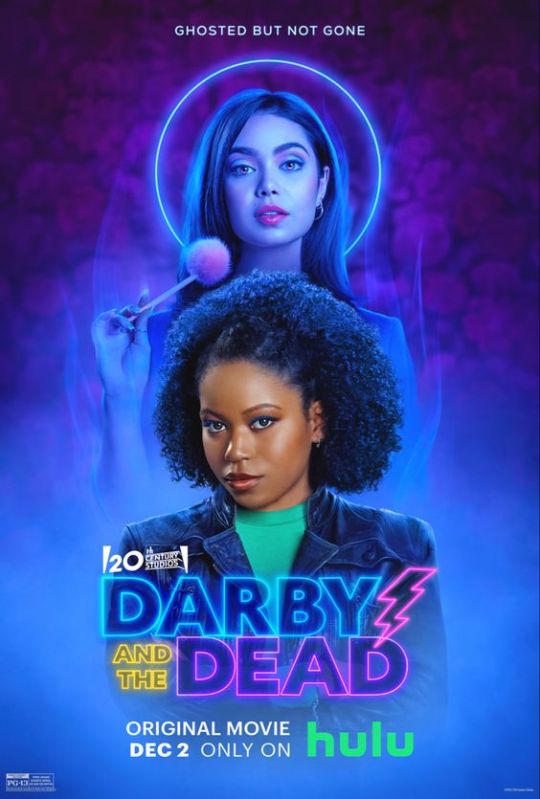

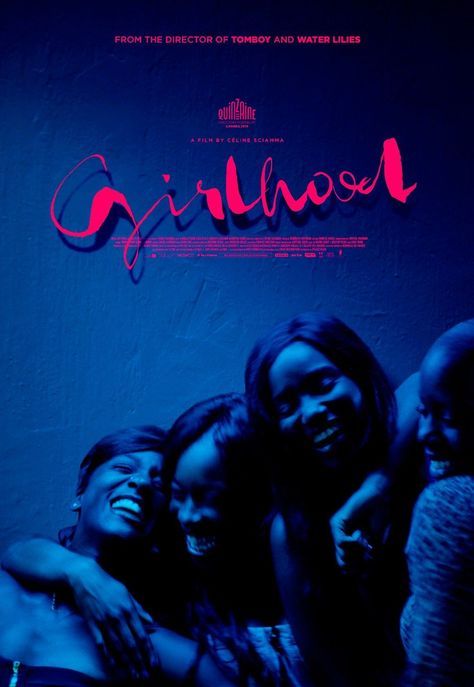

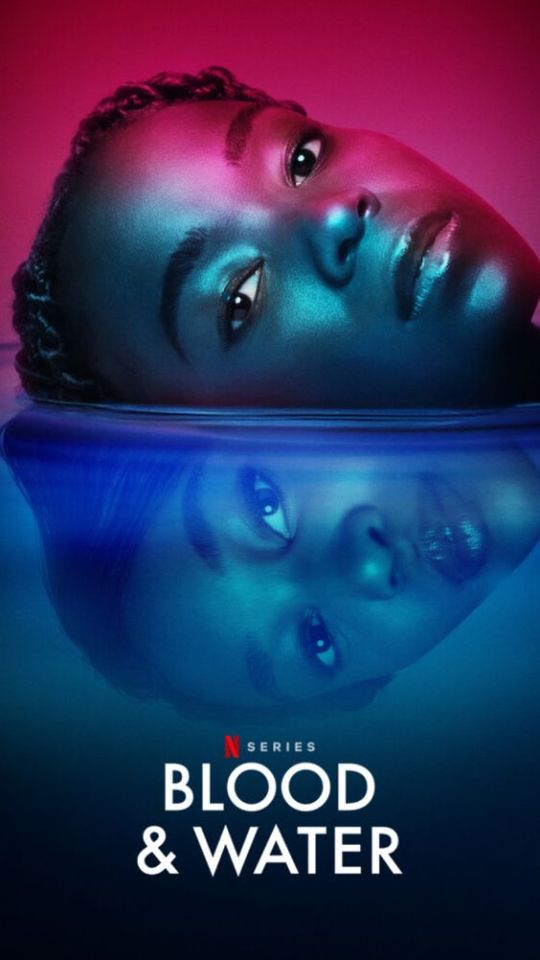
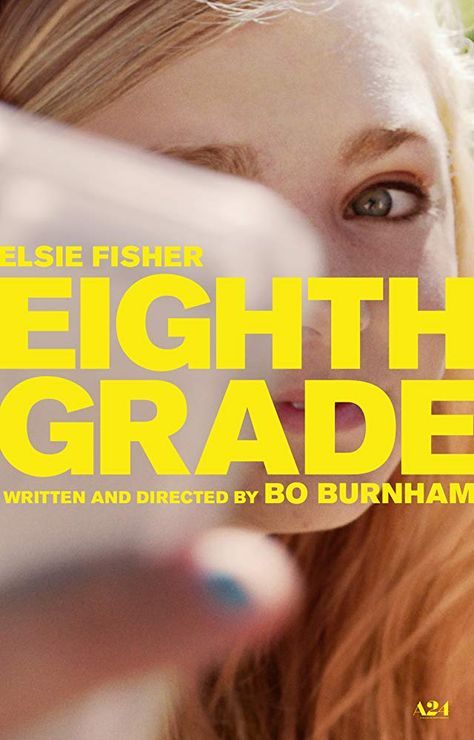
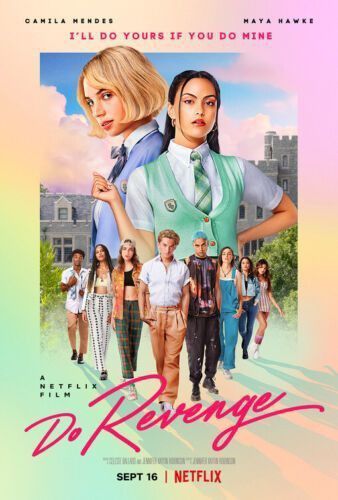
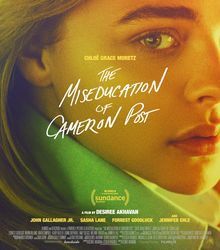
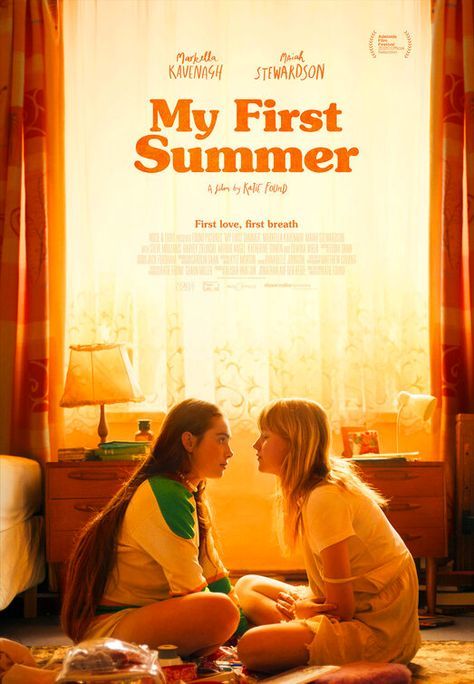
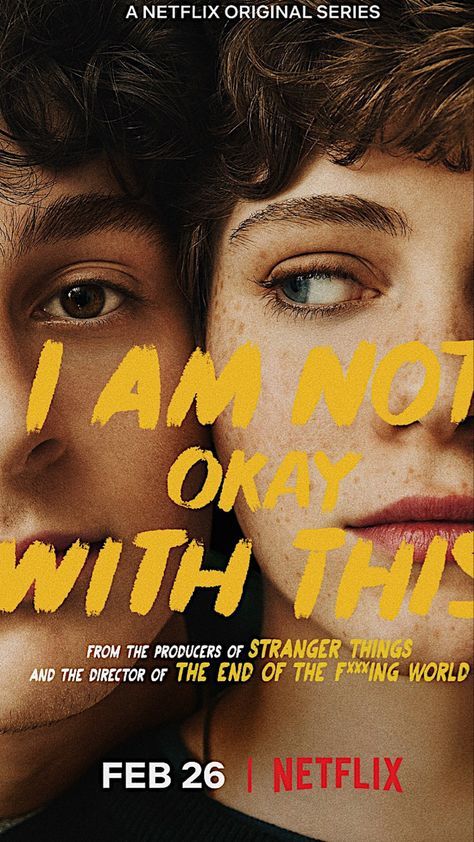

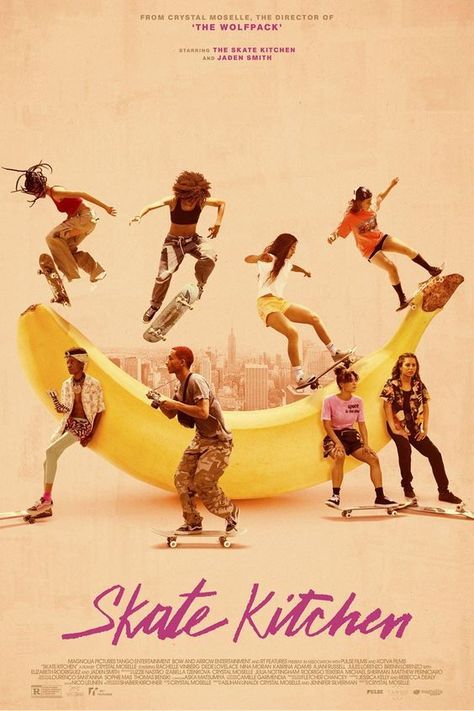
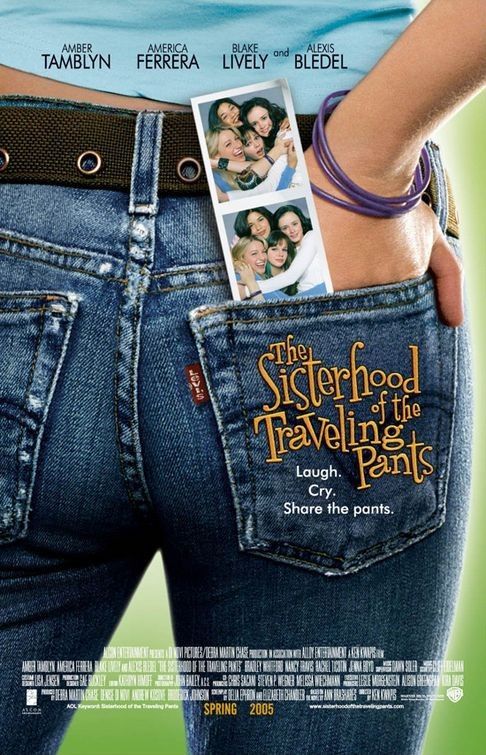
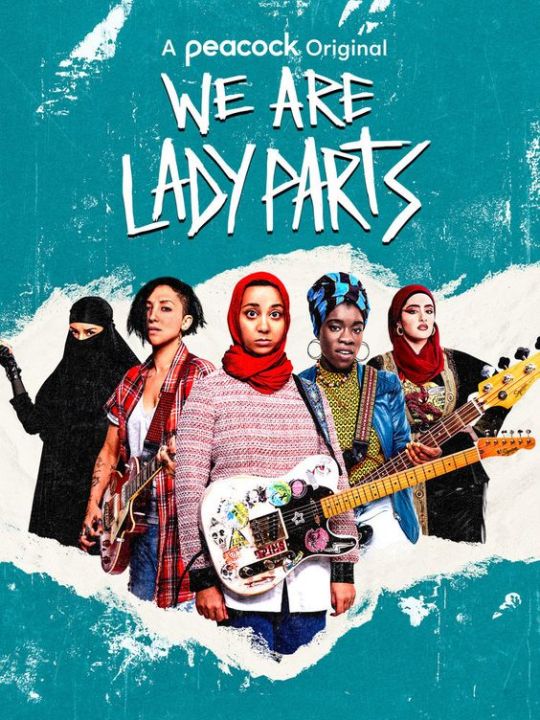
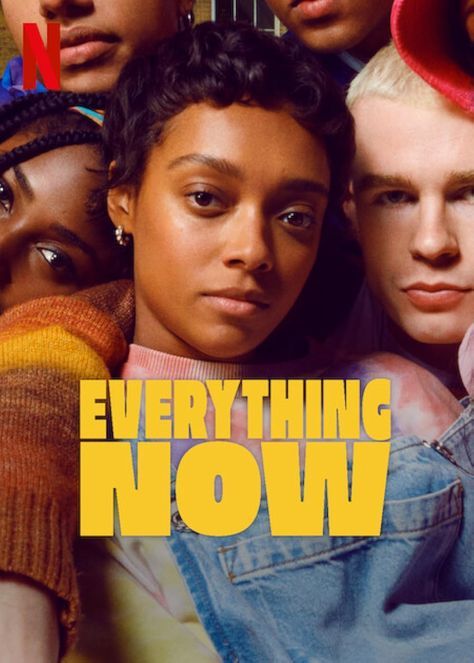

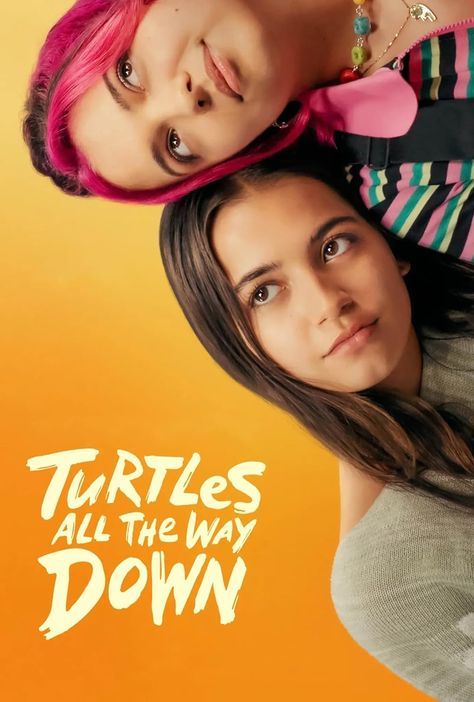



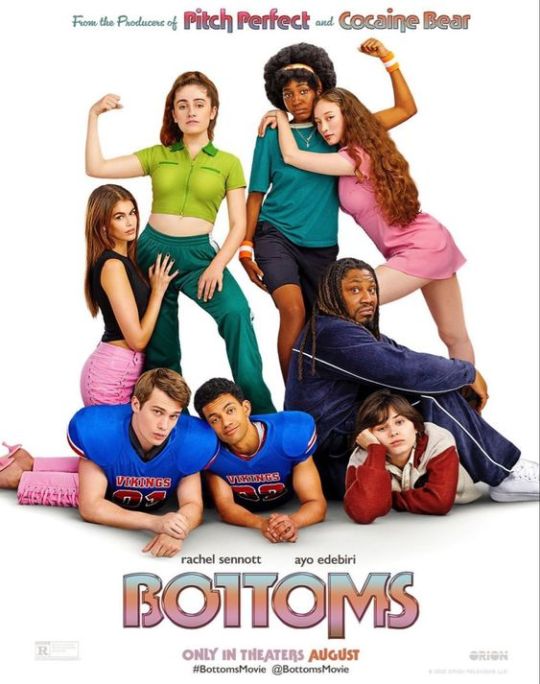

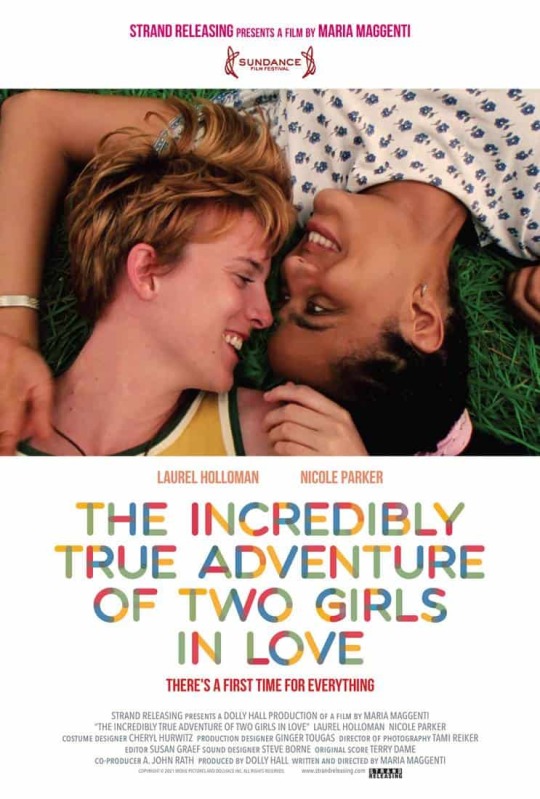
Common Themes/Tropes:
-Girls fighting with their parents
-Crushes and romance (and love triangles)
-Strong friendships
-Exploring sexuality (most of these have scenes of a sexual nature)
-Finding herself (or learning how to grow up)
-A lot of (oftentimes comedic) blunders
-Enemies/rivals to lovers
-Girls getting up to no good (or girls getting up to good but getting derailed)
ONES I HAVEN'T WATCHED:
Darby and The Dead
Girlhood
Blood & Water
Eighth Grade
I Am Not Okay With This
Skate Kitchen
The Sisterhood of The Travelling Pants
Ladybird
We Are Lady Parts
ONES I'D RECOMMEND
Derry Girls (9/10) (GOATED SHOW!)
Bottoms (9/10) (hilarious and insane in the best ways!)
Paper Girls (7/10) (the chaos that happens when adult you meets preteen you)
Everything Now (8/10) (actually deals with eating disorders appropriately, the most humanizing teen show i've ever seen)
Booksmart (8/10)(a calmer version of Bottoms, but still pretty unhinged and witty)
PERSONAL NOTES
The Miseducation of Cameron Post is the more sober version of But I'm A Cheerleader, where two lesbians get sent to conversion therapy camps. I found both entertaining and refreshing, full of nuance and oftentimes clever about the writing. The performances were also quite good.
I remember My First Summer being bittersweet, but I think there was one scene that made me a little antsy (because the girls in this are pretty young). If it was done tastefully is better left interpreted by those who decide to watch it.
Do Revenge is a whole bag of everything. Mean Girls meets Bottoms. Funny, cruel and unhinged (yet also a little sweet). It was overall fun stuff.
Skate Kitchen has a spin-off show by HBO called Betty.
I barely remember the one episode of Blood & Water I watched, but I know there were things I found to raunchy too be tasteful, yet there was also quite a bit that was still pretty solid and sweet. Not sure I can recommend because I don't know enough except it's about sisters.
If you like sweet and simple teen love stories, Rafiki and The Incredibly True Adventure of Two Girls in Love are right up your alley.
I only watched one season of Never Have I Ever to emotionally support my sister who had started it. I have never felt such visceral second-hand embarrassment in my LIFE.
First Kill is Romeo and Juliet with vampires and monster hunters. I liked the actors/actresses but you can tell that the budget for this show wasn't that big. If you like Warrior Nun, though, you may like First Kill.
#radblr#feminism#female centric stories#ya#young adult#teen fiction#teen stories#hadesoftheladies rec list#derry girls#never have i ever#the incredibly true adventure of two girls in love#but i'm a cheerleader#we are lady parts#everything now#lady bird#betty#skate kitchen#do revenge#i am not okay with this#paper girls#first kill#the hate u give#thug#rafiki#the miseducation of cameron post#the sisterhood of the traveling pants#turtles all the way down#booksmart
53 notes
·
View notes
Text
Blond Jerk Tourney Semifinals 2
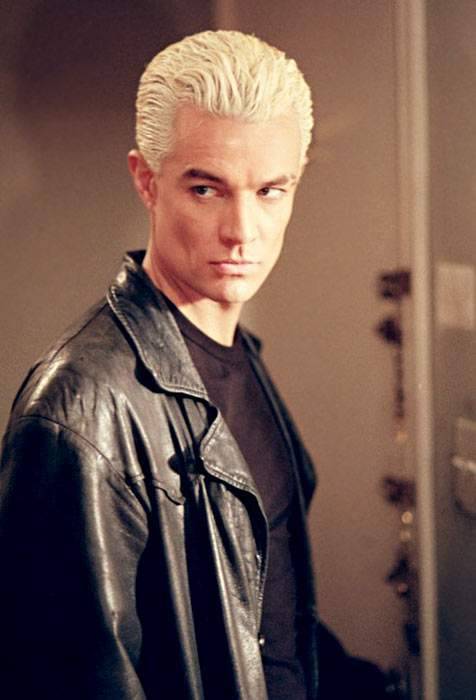

Propaganda from submitters Under Cut
Spike
He is a jerk. He is Spike. Of course he is a jerk. And he is a walking paradox. He was bad, is bad, but got better. No you can't fix him, but you can love him for his efforts.
Nanami Kiryuu
She's the mean girl of the show, and a pretty interesting take on the "bitchy vain school rival of the protagonist" trope. She spends most of her early screentime being a bully and most of her later screentime being both the biggest loser imaginable and deeply sad/troubled (which still does not erase how much of an asshole she can be). She even laughs like your stereotypical mean rich girl. Nanami has so many problems and sucks so so bad. I adore her.
Shes a psychotic bully who seeks to ruin the lives and reputations of any girl who gets more of her brothers attention than she does. Reasons Nanami Kiryuu deserves to win: - she has made many attempts at physical and psychological terrorism against Anthy Himemiya (including a plotted wardrobe malfunction at a crowded social gathering) simply for drawing more of her brother's attention than her - tried to fill Anthy's bedroom with wild animals (a snail, a snake, and a live octopus) to make her out to be a freak only to find that her room was already full of wild animals - she bankrolled an elementary schoolers crush on her to turn him into her personal boyservant - briefly non-personed a member of her bully entourage for sharing an umbrella with her brother - received a luxury cowbell due to a shipping error and smugly wore it to school for weeks flaunting it like high coture - when her bully entourage rebelled against her due to her brothers manipulation she brought them back in line by just straight up beating the shit out of all of them - all in all just a petty, goonish motherfucker (she also does the ohohohohoho anime girl laugh)
she's blond: despite being Japanese her hair is yellow, unlike her brother's. yellow is even her image color. she's a jerk: introduced as a jealous and dishonest scheming bully, she is one of the more outwardly antagonistic characters in a cast where pretty much everyone is a Real Piece Of Work she's the best: the quintessential ohoho-laughing ojou, her fully-realized character arc makes people both laugh and cry even her sidekick is a blond jerk! how many blond jerks have their own blond jerk sidekick?
i don't know what you've heard but she's NOT the kind of girl who lays eggs!
The token mean rich girl of the franchise. Does the classic "ohohoho" laugh. Doesn't like either of our main characters. She never actually seems to get her way, and secretly has a lot of her own problems. also she lays eggs and turns into a cow
Absolutely THE quintessential anime mean girl. I mean literally her laughing is THE meme for the hohohoho anime laugh. Needs attention So Badly and straight up bullies anyone she deems a threat to that (so basically Everyone). I haven’t finished RGU but apparently she duels with the intent to kill and drowned a kitten once because it was taking up too much of her brother’s attention? Also she’s 13 which explains a lot
#bjt semifinals#blond jerk tournament#tournament polls#polls#spike btvs#spike#buffy the vampire slayer#nanami kiryuu#revolutionary girl utena#rgu
92 notes
·
View notes
Text
So I wrote 7,800 words of an entirely new Dreamling fic yesterday pretty much out of NOWHERE based on a what-if headcanon chat that got ENTIRELY out of hand.
Basically, I’ve always found it weird that Hob is, well, WEIRD for an immortal. And I adore it! There’s basically no other immortals in fiction, or very few, who consistently have a day job, don’t become superheroes of enlightened morality in a couple lifetimes, or otherwise leave normal mortal life behind. Except Hob.
But there’s other weird stuff Hob gets up to in the comics especially. Namely: nothing. He sees a Sea Serpent in Hob’s Leviathan and just sort of… shrugs it off. He supposedly ran into a vampire coven while hanging out with a Constantine and they killed Constantine and kinda left him alone. He seemed otherwise pretty unphased. Between 1689-1889, unless he’s with Dream, very little happens to him. He just seems prosperous in both meetings.
But while Dream is gone, during the Blitz, his wife Peggy dies in his arms. That’s pretty dramatic. That’s main character tragedy.
So what if… Dream subconsciously pigeonholes Hob as not a fellow immortal of increasing antiquity, now over half a millennia old, but… just a guy. Just the guy he met in 1389? That certainly seems to be part of why he reacts so poorly to being called lonely in 1889. He can’t fathom that the human mudpuppy he met in a tavern that was basically a hovel could suddenly have INSIGHT into one such as him. But Hob was over 500 years old at that point! And Dream respects other eldritch creatures like fae and demigods, even if they are younger than him. So what gives that he doesn’t see the 500+ year old immortal human as maybe capable of insight into the life of a fellow eldritch being?
Because Dream doesn’t think of Hob that way.
And Dream IS the human subconscious.
Things get really meta from there because right you’ve got all these Doylist reasons that Hob is Just A Guy who seems allergic to getting involved with any of the grand stories of Sandman except as a bit part. A minor character even in his own story. But since it’s a story about stories, you can make it Watsonian too.
Maybe because Dream doesn’t think HE has a story (he says, in the comic which is ABOUT his story, thus undermining his point with a 4th wall break) and Hob is the only person in his life who is basically a normal friend and not a subject or family member or eldritch colleague… does he mentally pigeonhole Hob as not having a story either but just being witness to other people’s stories, like Jim?
It’s kind of weird isn’t it how in Hob’s Leviathan he spends the whole thing WONDERING what secrets lie beneath the surface of the ocean but when the sea serpent bursts forth he just sort of… shrugs?
It’s a bit weird too, in the show, even though I adore how unexpected the beat is, that after 34 years’ delay, Dream shows up and Hob barely reacts except to quip that he’s late. Though I’m sure Dream was very grateful. 
… so I kinda wanted to do a one-shot about how this is actually an eldritch effect Dream accidentally cast on Hob. He sees Hob as just his normal friend despite being immortal. So Hob is Normal. Aggressively normal. He has a day job despite being 600+ years old. He exhibits none of the typical behavior one would expect out of a man who loves life so much he refused to die. And Dream realizes this when he learns that Hob’s 20th century was INSANE, filled with adventures and high drama and lost love and passion. A century where Hob was the protagonist in his own life story again. And it all abruptly stopped and he went back to having a normal human job the second Dream was free.
Anyway, Dream is gutted by the realization. The rest is them figuring out how the fuck this HAPPENED and if it can be fixed.
223 notes
·
View notes
Text
Randomly thinking about that "vampires are uniquely vulnerable to the symbols and rituals of Roman Catholicism, no matter what the vampire's religion or their opponents' religions are" cliche that we all loathe, and it occurs to me that this cliche comes from the original Dracula novel but (as is so often the case with the origins of cliches) the way Dracula uses Roman Catholicism is not the cliche. (spoilers under the readmore)
In Dracula, Catholicism, and Christianity more generally, are not placed in opposition to any other real-world religion. Instead, folk-Christian faith (the Transylvanian peasants and sailors) and unauthorized off-label application of Roman Catholic ritual (Van Helsing) are presented as the only readily available alternative to casual disbelief in the supernatural.
Except for Van Helsing, the protagonists — Jonathan Harker, Mina Murray, Lucy Westenra, Lucy's family, Lucy's suitors — are all sensible late-Victorian educated gentlemen, ladies, and cowboys who think there's no such thing as a vampire. When Harker accepts a crucifix from that Transylvanian woman whose name we never get, he thinks he's humoring her; he doesn't think it has any power to protect him, and he doesn't think there's anything he needs supernatural protection from. Later on, when Lucy is suffering from anaemia of unknown cause, John Seward sends for Van Helsing because he's an expert on obscure diseases, not because he's an expert on vampires or religion.
Van Helsing does believe vampires exist, or at least he takes the possibility seriously. He fights Dracula using Roman Catholic ritual and symbols, among other things; the garlic, for instance, is from Eastern European folk traditions. But he's not a Catholic priest (he's married, so he can't be) and he's not following actual Catholic procedure for exorcism or anything; in fact, several of the things he does (e.g. with the communion wafers) would be considered blasphemous. He's just using Catholicism as one of several sources of counter-vampire procedures that he thinks have a chance of working. It happens that the Catholic-derived procedures do work, but we are given no reason to think that they are the only counter-vampire procedures that will work. Indeed, the fact that the garlic also works is evidence to the contrary! And the protagonists' eventual victory over Dracula is presented as the result of luck, personal courage, and strength of arms, not faith.
31 notes
·
View notes
Text
Louis de Pointe du Lac, as originally written, could be regarded as one of lit's most famous "also rans", someone who was originally positioned as Thee Tragic Figure of the series, only to be almost immediately superseded both in the readers' and the author's minds with Lestat. Like, you know Louis because of the original book, but Lestat is the one everyone talks about, Lestat drives the rest of the series, Lestat has all the best lines.
And the movie, as much as I personally don't like it, only sort of dug this further into the pop cultural understanding of the story. Brad Pitt is at his most "I am relying on pretty" boring and sulky; when there is a performance, it's largely annoying. And Tom Cruise... I mean, it's literally nothing next to what Sam Reid does in my mind, but it was at least very off-brand for him at the time, and he was doing SOMETHING, and he (and Kirsten Dunst) have the most iconic Moments, the camp, the arguably most memorable part of the movie (the very end with the Sympathy for the Devil cover playing us off).
So it's honestly SUCH a testament to the innovation of the show's writing and the brilliance of Jacob Anderson's performance that Louis has been reinvented, not only as a compelling protagonist, but as a character that is EASILY as complex and multilayered as more traditionally antiheroic/villainous types like Lestat and Armand and Claudia. He's more than the beautiful, tragic object of Lestat and Armand's affections, he's more than the guy telling us the story.
Louis is self-loathing and self-aggrandizing; he's victimized by Lestat, and he manipulates Lestat, very aware of his own emotional hold over him (might we note how much agency Louis had over Claudia's turning, and how Lestat in no way would've done that if not for Louis... and that act was arguably one of the most selfish in the series, if emotionally understandable). He's controlled by Armand, yet we get hints that he's actually quite dangerous and perhaps in some sort of self-delusion about just how dangerous he is (and Assad certainly plays Armand like he's nervous as fuck about Louis knowing the truth--and I don't think that's JUST about the possibility of Louis leaving him once he finds out).
Louis tells himself that he loved Claudia more than anything and that she was his "spark in the dark", when we see that in reality their relationship deteriorated over time and continued to do so, even after the person who was seemingly a wedge in their relationship was vanquished. We see hints, perhaps, that Claudia was no more the ideal daughter in his mind than Lestat was the ideal lover.
And that last scene in the premiere? When we're not sure who the "you" is? Sad and kind of horrifying, too. Because like--what will Louis do to Claudia to further his own love and obsessions? Who does Louis prioritize more--Claudia, Lestat, Armand? Maybe none of the above. Maybe himself and what or who he thinks will stave off his own loneliness, his need for love and validation and, yes, power.
None of this is a criticism of the character. The show already did something SO good and SO smart by turning Louis from a white slave owner to a Black man with money and social standing, still so held back by the laws and environment of his day. Vampirism gave him agency, yet the show, in season one, showed the potential for Louis to still be the perpetual tragic victim (in episode five especially). And maybe they'll still slip up and do that.
But increasingly, with the reveal in the s1 finale and the s2 premiere, I think we're getting the implication that the thing Louis could be protecting himself from mentally (with some help from Armand--I don't think Louis's memory issues are all Vampire Magic, though) is something horrible that he did. A choice he made. Because Louis does have agency, and the narrative allows him to be someone with conflicted desires and a complicated sense of self. Someone who doesn't love PRETTILY. Someone who is manipulated and manipulates.
Like, I've joked about him being this kind of like vampiric Helen of Troy because of the allure he holds for powerful figures like Lestat and Armand, but I also think it's so powerful to explore the way that Louis uses that appeal and ALSO makes fucked up decisions on his own because he is... into being adored, frankly. Even if the people who adore him also hurt him. He gets caught up in his own romanticized retellings of his life story, whether heartfelt or tragic, because in those retellings he can pretend that he had no choice, he had no ability to say otherwise.
But like--Louis could have stopped that woman from being decapitated, potentially. Louis didn't have to walk away from human affairs. He chose to do so, just like he chose to beg Lestat to turn Claudia. Just like he chose to deny her Lestat's true death.
And I think there's like, an attempt to reckon with this in the unreliable narration of the books, but I also think that this is so dependent, in Anne Rice's version, on spinning to Lestat... That Louis's culpability and untruths are overshadowed by his Everything. Here, the story lets us soak in Louis's mind, and Jacob Anderson's performance really seals that. I find it so smart.
#interview with the vampire#one of the only shows that gets me excited enough to meta rant these days#anyway jacob anderson i love your work#(to be clear i love everyone's work this is truly one of the strongest casts on tv)
43 notes
·
View notes
Text
On "immersion" in narrative
I should be relaxing today taking a victory lap because my book is finally live on sale, woo!
But I have this to say first, in the realm of “you can’t please everyone”. I am not a reader who enjoys extremely fluffy narrative, not “fluff” as in “feel good cotton candy stuff” but as in “300 words of describing the layout of a bedroom” fluff. I don’t like when the pacing moves as slow as molasses, not for introspection, but for telling about every little thing that happens in the story no matter how irrelevant it is to the story or its characters.
I had a beta reader for ENNS who left at least 20 comments across my narrative asking for all this extra material because my book felt too lean. I had a birthday party for a side character’s newborn daughter, when the side character herself was never even named. The plot takes place in a castle, and, shocker, the castle isn’t only populated by Main Characters.
It was just the inciting incident of the chapter that got my characters staged in the right location and the right mindset (happy fun birthday party, sourpuss self-saboteur protagonist is really missing out).
But she’d left me a comment asking for probably at least an extra 500-700 words of details about this party. She wanted to know about the food that was served, what everybody was wearing, what music they were listening to. She wanted to have actual dialogue between the new mother and some important character, some comment about life and death and parallels, and wanted all these details about a three-day-old newborn baby.
I deleted that comment. And every other comment like it.
Why? She is not my target audience and was my only beta with such notes, but also, even if this was that kind of book, she failed to understand what, I think, counts as meaningful to the narrative. That baby only showed up maybe twice in the book. The mother, like I said, never named.
The point of the party was simply “hey happy times exist in this place that you hate, Protagonist”. Spending paragraphs upon paragraphs on a little narration side quest to give you irrelevant details that don’t advance either the plot, the worldbuilding (there were other parties where I described the clothes and food and music), the important characters’ thoughts, feelings, goals, or conflicts, at the cost of keeping the pacing more consistent would have been superfluous.
And that party in of itself was fluff. I was following through on the set up of a pending newborn, spent time describing how a castle full of immortal vampires who don’t have to sleep can crochet baby clothes for a week straight and now this baby has far more clothes than she could ever hope to wear before she grows out of them. I had my narrator, a vampire, comment on how much he likes these events because new life is so rare in this bleak setting. I spent a few sentences describing the baby herself, and then he left to continue the story, taking talk of the party to the pissy protagonist and going “buddy you are allowed to have fun and meet the baby and your attitude is really getting old.”.
500 words might not sound like a lot, but she had asked for these extra paragraphs constantly. She argued it was for immersion.
The thing is.
I don’t like superfluous fluff, but I do like fluff in moderation. I don’t think any one element that takes up more than two sentences or so should exist for one sole, niche purpose. Meaning: You want to toss in a detail about a supporting character’s woodturning hobby? Great! You want to spend two whole paragraphs going on a tangent about this hobby that never comes up again and isn’t actually that important to the character? Why?
This is not to say that I think all books should be lean, this is just what I like. I don’t have the attention span to sit around waiting for the plot the author forgot about so I can read a whole page about the kingdom’s irrelevant potato farming practices. I do have time for a couple sentences about the irrelevant potatoes. I do have time to read a whole page about the kingdom’s potatoes if it’s setup for a potato famine.
There are ways to be immersive without overkill. All this counts as exposition—establishing details that set up your world and your story—and what she was asking for was a series of exposition dumps, several of which were redundant.
As a writer, I work very hard to give expository details as they become necessary. I won’t describe the dresses at a party until my narrator has time to thoughtfully comment on said dresses at said party—which he did. He came from a place that didn’t have dresses, much less lavish parties, and criticized the castle’s hedonistic opulence. He wasn’t plotting his escape, stopping mid-thought to tell the reader about the costumes, and then carrying on.
I could have waxed poetic all day as well-constructed and seamlessly as I could to work in those details to try and make them matter, but a) that would be rehashing the ‘hedonistic opulence’ and b) it really, truly, did not matter.
Would a reader like her enjoy my book? Eh, probably not. Would a reader like me enjoy her book? Eh, probably not.
There is plenty of room in libraries and on bookstore shelves for “lazy river” style books where the whole point is reading about as many details as the author can cram between the pages and there really isn’t a plot, it’s more about the setting and the relationships. Can’t mess up the pacing with an exposition dump if there is no pacing. Not my kind of story.
Doesn’t make either of us bad writers. She will have her audience and I have mine. I only argue for details that serve a purpose, and if that purpose is a solitary and weak one, then that’s not enough for me.
#writing#writing a book#writing advice#writeblr#writing resources#writing tools#writing tips#pacing#immersion
27 notes
·
View notes
Note
I haven't yet read the books (there's so many!) I've only watched the iwtv movie and TV show and I love Claudia in both but I've had people tell me in the books she's awful and considered to be one of the series villains. Idc about spoilers I just wanna know how true that is bc I dunno if I'd want to read that lol
Hi anon! I was excited to see your ask this morning because I'm gonna tell you something: Claudia was one of my first favorite characters in the series and her death devastated me. Louis was my first fav (understandable, he's literally the protagonist of the first book, we're meant to sympathize with him!) and when he lost Claudia and became numb in his grief, I related. I hated Armand for what happened to Claudia and I held a grudge for a long time.
Anyhow, I can't speak to the show so much as I've only seen season 1, but if you like the 94 movie, you will probably like the novel Interview with the Vampire. It's a pretty close adaptation.
To get to the heart of your question, no, Claudia not an awful villain. Anymore than Louis or Lestat are. If anyone is a villain in IwtV, it's Armand, and even he is not a mustache-twirling evil guy.* Everyone in this series in morally gray and does terrible stuff. I emphasize that because I've been in this fandom for a long time and I've seen all kinds of arguments about who is evil and who is not, and the fact is, all of our vampires do questionable things. That's sort of the point. So it's arguable how much there even is a villain in IwtV outside of Louis' own depression and grief, but Armand probably gets that honor.
Claudia in the books was turned around the age of 5. She is a very small, doll-like child who doesn't seem to retain much, if any, memory of her human life. She is more purely a vampire than Louis or Lestat can really fathom because she lacks that humanity and a connection to humans. She's a natural hunter and killer.
She doesn't understand Louis' sentimentality for humans, and resents Lestat for withholding information she knows he has about their kind. She is a complex and fascinating woman trapped in the body of a small child to the point where even Louis, who loves her dearly, cannot really see her as an adult and struggles to accept her agency. She does manipulate both her parents, in part because they don't often see her as a capable equal, which she very much is.
She does eventually rise up to kill to Lestat out of desperation. She believes he will not let Louis go and knows she can't travel around alone, given her appearance. Lestat himself is devastated by this and by her loss, and even says later he understands why she did it. That he probably deserved it for what he'd done to her, which was trap her forever in the body of a very young child, something he admits was selfish. (And something Marius had actually warned him against doing beforehand, LOL!!)
Like in the movie and the show, she does die at the Theatre des Vampires, and Armand is more responsible for that than I've heard he is on the show (he tells Louis he couldn't have stopped it, only to later reveal he orchestrated it, which Louis knew the whole time).
She appears later in The Tale of the Body Thief mocking Lestat and acting as a sort of voice for his subconscious, but she is just his hallucination in he book. He's dealing with a lot of trauma and grief and that manifests itself as Claudia's ghost.
Where you might be hearing she's a villain is from Merrick, where both her diary and spirit appear and are... not very nice. I gotta say, I am not convinced that is actually the spirit of Claudia that gets conjured, and even if it is, it's possible she's been warped somehow. But I also haven't read that book in decades and often tend to ignore it, so I am not an expert on that score.
I hope this helps! I'm always happy to answer questions about the books! (They are my special interest, if you cannot tell.)
But I do want to say that if you are a fan of the show and curious about the books--which are very different!--I highly recommend you read at least the first few yourself. The best way to judge if you'll like the book versions of the characters and story is to experience it yourself. There's a lot of misinformation that gets passed along about the books, and a lot of misinterpretation due to that because people just repeat what they've heard without having read them. And hey, they still may not be your cup of tea, and that's totally fine! But you won't know if you don't try, you know?
Anyhow, thank you so much for the ask! 💖 Claudia is awesome and deserves more love in the book fandom, but because she dies so early on, she doesn't get as much attention sadly.
*And even when he is, we love him.
#claudia#vc meta#interview with the vampire#lestat de lioncourt#louis de pointe du lac#iwtv#merrick#the tale of the body thief#totbt#vc#tvc#the vampire chronicles#vc books#armand#answers in the desert#anonymous#vampire chronicles
25 notes
·
View notes
Text
The characterization of Klaus in his fanfics is just insane.
First of all, this is gonna be bashing to 96% of Klaus’s fanfics lmao. I still love reading them tho.
But straight to the point, why are people writing him as if he would ever allow someone, anyone, to disrespect him the way authors make their ocs do??? No, Klaus wouldn't be giggling and shit if you call him "puppy" or "Santa Klaus", he's literally gonna murder you in the spot and even worse lmao.
I've read so much stories where the protagonist is constantly insulting Klaus and bickering with him (it's funny tho) and he just... allows it. Yes, Klaus, the man who's literally shown to tear off heads whenever someone as much breathes in the wrong way, and yet he allows this teen (because in 99% of fanfics the protagonist is a girl not over nineteen, at least physically) to talk shit about him.
Like I absolutely love those kind of stories, they're good and I'll continue reading them, but the Klaus they write is 100% ooc. And I understand why, because as someone who used to write fanfics of him, his character is just so difficult to write but it doesn't seem like they even try to.
Moving to another famous trope in his fanfics: soulmate stories. I find it very ooc that he would actually accept he has a soulmate: he wouldn't believe it, he's literally the most paranoid character of tvdu, Klaus would 100% believe it's just a plot made to control him and he would probably kill his soulmate, only to regret it forever. Or those "I've been seeing her/having dreams about her for a thousand of years, she's without a doubt the person I'm meant to love forever", what?? 😭
If Klaus ever saw this person in real life, there are just two possibilities I can think of:
A) he would be extremely paranoid and would kill this person on the spot
B) he would be extremely paranoid, but decides to not kill x person for some barely explained reason and would get to know her/him and perhaps fall in love.
I'm aware Klaus can and has been soft in canon: with his family (in occasions, more in New Orleans modern era), with Hayley, Marcel, and Cami. I mean, Klaus loved Cami so much he actually begged her to not leave him, to fully turn into a vampire because he was terrified of losing her, and a decade after her death he was still in love with her (something a certain part of the fandom fails to see lmao).
The fanfics where he cheats with Hayley/Cami/Caroline/ Genevieve/Aurora or he just cheats while he's in a relationship also are ooc imo. If he's in a commited relationship and he loves the person he's with, I don't see him as the cheater type, especially because he wasn't sleeping around in the program.
But either way, show me the fanfics with true depiction. Show me fanfics where he's so screwed up that he continually pushes the person he loves away, where he constantly hurts them with/without intention as he did to his siblings, where he constantly uses his s/o for his own personal gain or similar. Where he's actually his true self, the man he was in tvd before having Hope and even after having Hope, because she actually did not change him that much.
I think I only found three fics like that: one in ao3 called I Would Hurt A Fly, where the oc was a witch or something like it and he used her as a personal sex toy/blood bag but there were slight hints of his love but sadly was deleted.
Or the ones written by @viavolterra and @saintsir4n, the way they write Klaus is the closest I've ever seen to his canon self and it's genuinely good writing. Patisserie is also a really good written fanfic that writes the characters well, but it's a poly Mikaelson fic (which it's even better, the more the best)
Either way, a violent man isn't gonna change with the power of love and family. The Originals tried doing that with Hope and they failed, because Klaus was the same man he was at the start, just slightly less mean to his family.
#klaus mikaelson#niklaus mikaelson#klaus mikaelson x reader#klaus mikaelson fanfiction#niklaus mikaelson fanfiction#klaus mikaelson imagine#mikaelson family#hope mikaelson#hayley marshall#the originals#the vampire diaries#tvd#to#joseph morgan
336 notes
·
View notes